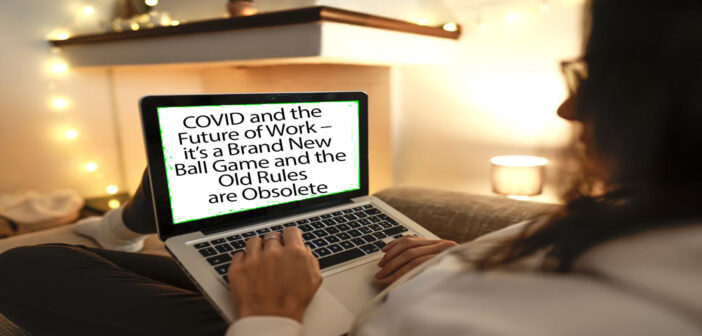I’m sure you’ve been reading a lot about how the work force has changed dramatically and people are not gong back to work and jobs are left unfilled. There are all kind of reasons being thrown around with some blaming unemployment benefits while others saying people are reevaluating their relationship to work or are still worried about going back because of the virus. My guess is that all these reasons are factors. However, one trend is emerging which is that some business leaders are not very fond of this “wokeness” amongst their employees and are actively resisting the hybrid model and are insisting that their people need to come back to work in the office. This despite the fact that productivity has not suffered from working at home – in fact, some postulate that it actually went up measurably.
A recent article in Fortune “The psychology behind why some leaders are resisting a hybrid work model” tries to get into these leaders heads and identifies some interesting points. Alumni of our Category Management/Supply Chain “U” will recognize some similarities with the discussion from the Decision Making workshop (my all-time favorite workshop to deliver 😊). The article suggests that cognitive biases (mental blind spots) are driving these leaders to resist adopting the hybrid model despite extensive surveys that indicate an extremely strong preference by employees to go that route. And before we write this off as an insignificant issue, the article states “their behavior is a major threat to the bottom line.” Employees are voting with their feet, and they have many options. Google just backtracked on this issue and Apple has had many leave because of this issue.
The first bias identified is called the status quo bias which is a need to get back to the way things were. The next one is called anchor bias which essentially is the inability to shake off what we know to be true based on our own experience – these leaders grew up going to work wearing a suit and a tie, carrying a briefcase and leaving home early and coming home late from work – that is their anchor, and they cannot let go of that mental model about work. You may wonder how can they ignore overwhelming surveys and evidence that clearly proves that employees are very productive working from home and strongly prefer at least a hybrid model? Confirmation bias is what the author points to which is the ability of people to ignore anything that does not confirm with their beliefs and opinions. Leaders also assume that their employees agree with them because of a false consensus bias.
While you may or may not agree with the central thesis of the article, what is important to understand is that the definition of work has fundamentally changed for the near future and if you have leadership in your company that is resisting or denying that change, you may have a challenge on your hands. Most companies reacted to the pandemic and went to remote work assuming that it was going to be a very short-term situation. Employees are wanting to ignore the impact on culture, teams, organizational development, growth and development, social bonds etc. etc. All of these issues are evolving, and we are all adjusting to new realities. However, an insistence on returning to the way we were ignores that new reality and will have significant impact on our ability to attract and retain the best talent.

